Middle School
Middle School Academics
Literacy
The middle school’s innovative literacy curriculum combines reading and writing to strengthen learning in both disciplines. Small groups of three to six students attend literacy classes one hour a day, five days a week.
To effectively address a wide range of reading skills, students are grouped together with those who have similar struggles and strengths. The small class size permits the literacy teacher to differentiate instruction to meet the needs of every student.
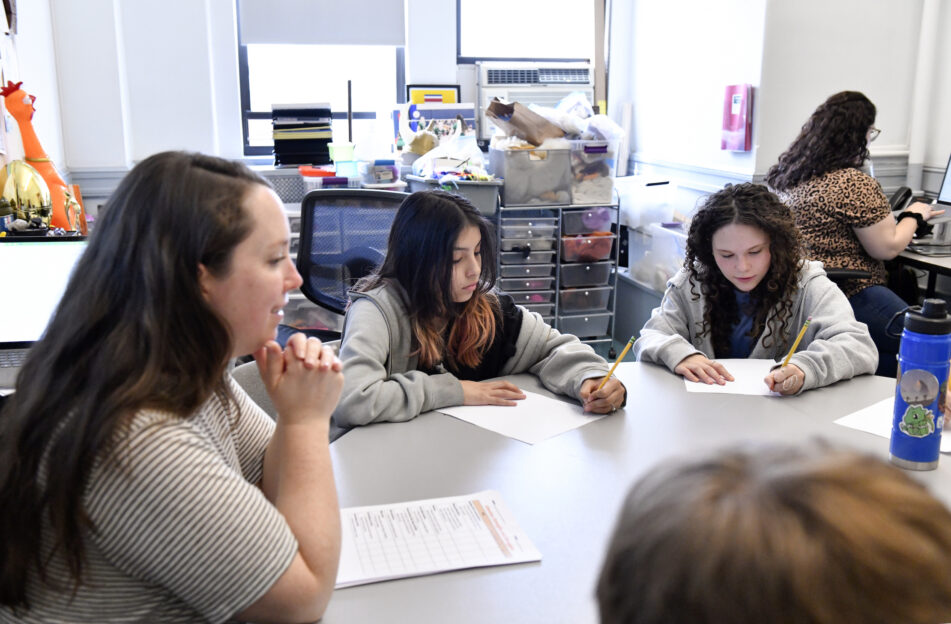
Students learn decoding, encoding, comprehension, vocabulary development, and the mechanics of writing from sentence structure to research papers. Teachers draw on many programs, including Wilson, Scientific Spelling, and The Hochman Method, a structured, sequential program that links writing to the process of language.
Technology, such as voice-activated software and audiobooks, makes it possible for students who struggle with decoding to participate at their comprehension levels.
Math
Math classes meet one hour per day, five days per week, in small cross-graded groups of three to six students. Math teachers meet students at their levels and help them move forward with a curriculum that has been designed and/or modified to meet their needs.
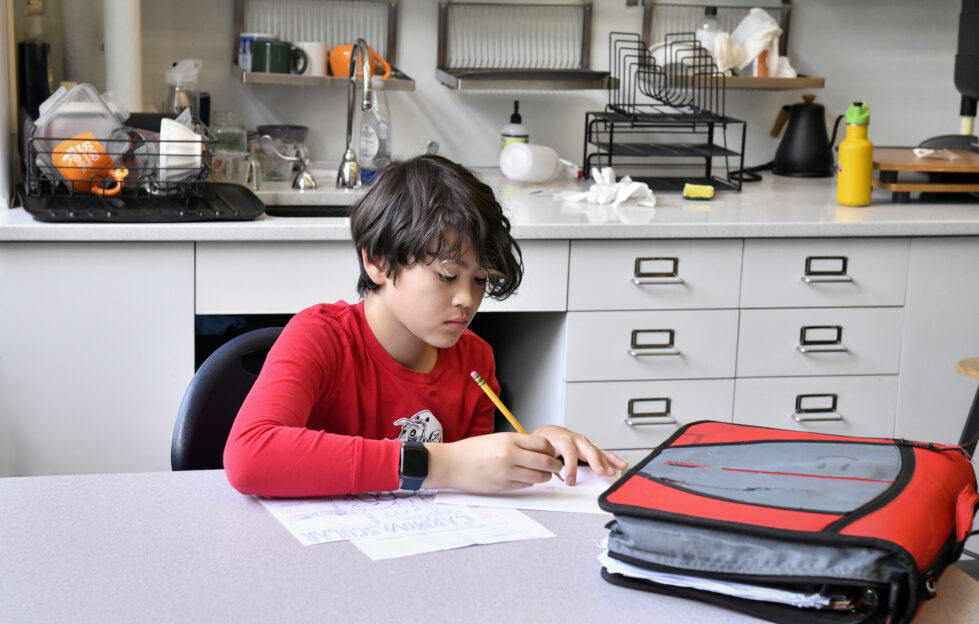
The middle school’s highly structured approach offers resources both for students who struggle and for those who excel. Students are grouped according to skill level in order to differentiate instruction to better meet their needs.
History
The middle school history curriculum teaches students to ask questions. Each grade focuses on a broad theme and tackles specific subjects, teaching students to gather information from a range of sources and to be independent thinkers. Concepts such as change, conflict, diversity, and empathy are embedded in every course to encourage students to examine how historical events relate to their own experiences.
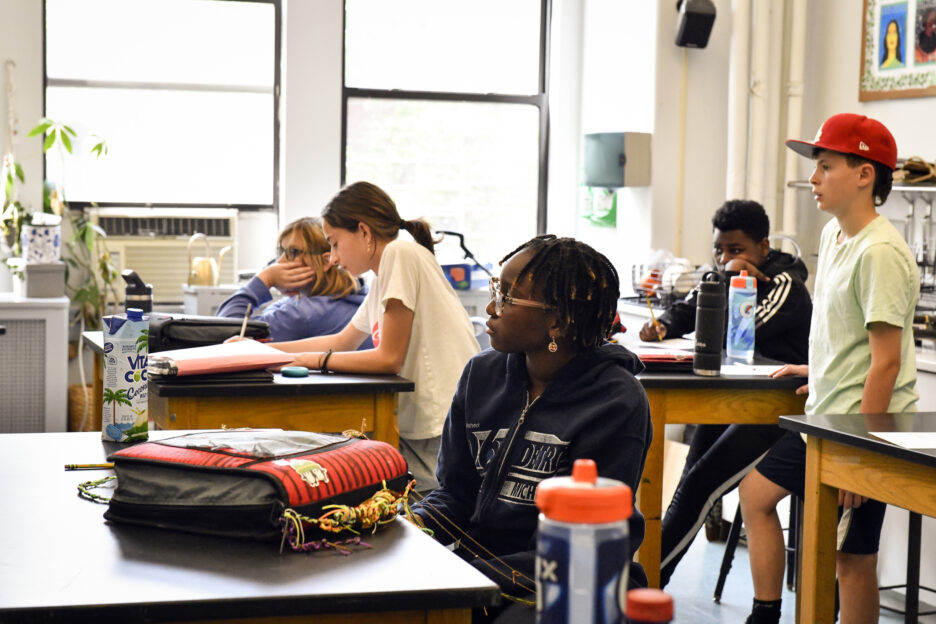
The sixth grade curriculum focuses on ancient civilizations. The seventh grade focuses on American history from the precolonial period to Westward Expansion. Seventh graders travel to Philadelphia to visit important national monuments and museums relating to the founding of our country’s democracy. Eighth grade focuses on the theme of human rights, with subjects that change each year. Past areas of focus have included American history from the vantage point of Native Americans, African Americans, and immigrant groups. Students are taught research skills using both online and print sources.
Current Events
Current events courses are part of our core curriculum, encouraging our students to understand their participation in a global society. These classes teach students to become knowledgeable about local, national, and global events and to be educated consumers of news. Students are introduced to multiple perspectives and learn to formulate and articulate informed opinions on events taking place at all levels.
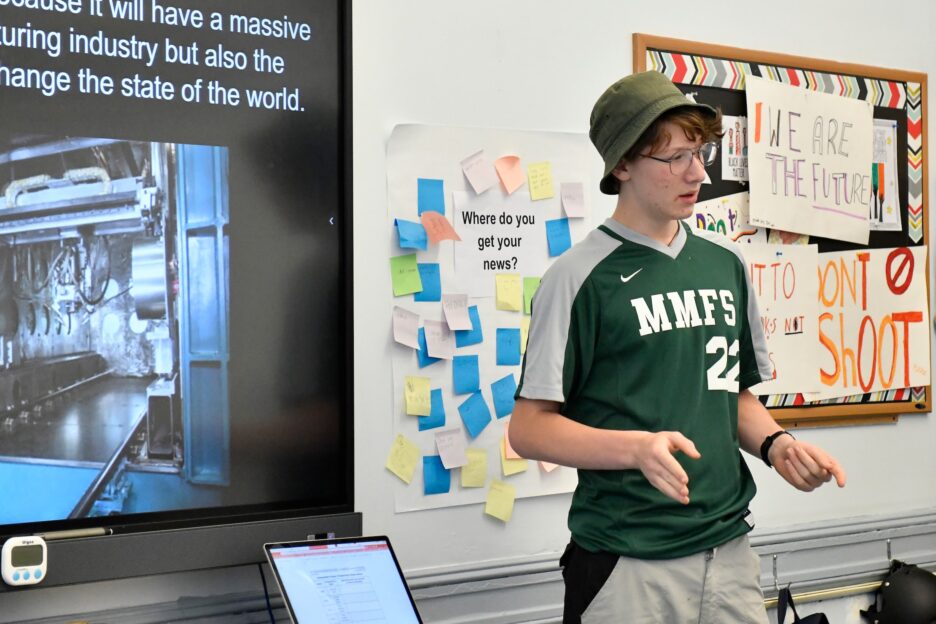
The sixth grade curriculum introduces students to the terminology and geographical and cultural contexts that are essential to understanding news stories, with a focus on the national level. Seventh and eighth grade students focus more on global issues. Students gather and analyze a broad range of news sources. They learn to make observations and predictions drawing on both fact and personal experience.
Digital Literacy
Students in every grade attend digital literacy classes. In the sixth grade the focus is on basic computer and web literacy. The focus in seventh grade is on responsible use of the Internet and social media tools. Eighth grade students continue to learn about Internet safety and responsibility, with a review of the many uses of social media.
The students also practice information literacy skills to determine if online sources are valid, balanced, and/or biased.
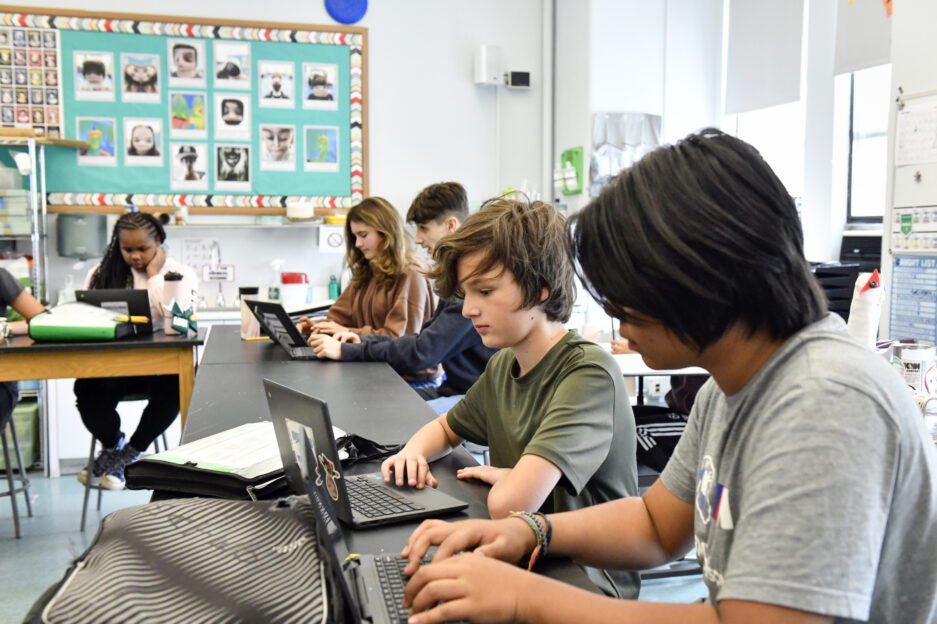
Science
The science curriculum cultivates a love of science and curiosity about the world through dynamic, engaging experiments and scientific inquiry. At the core of the curriculum are multisensory, hands-on activities that make it possible for many students with learning disabilities to grasp abstract scientific concepts.
Sixth grade students study earth science and the changing earth. Seventh graders actively explore life sciences. Eighth graders study physical science, physics, and chemistry. Technology is available to support students’ learning throughout the science curriculum and to make scientific phenomena tangible through virtual, experiential activities.
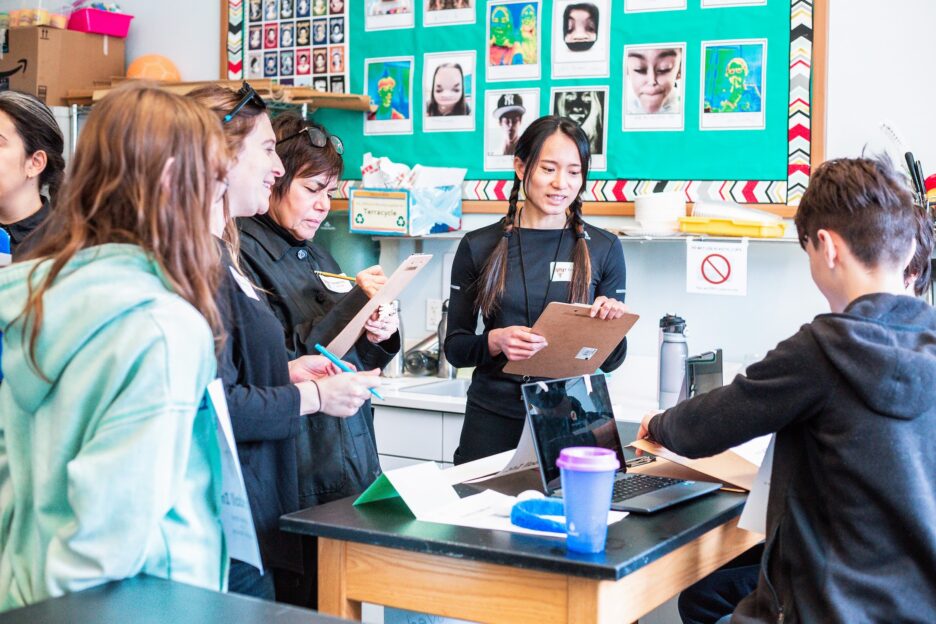
The middle school holds a science fair every spring. The science fair is an exciting event shared with families, peers, and teachers. It gives students the opportunity to see what their peers are studying and to explore their increasing independence.
Spanish
Middle school students study Spanish twice a week for all three years. While second language studies are unusual for a typical learning disability curriculum, our students have demonstrated that they are more than capable of learning and even mastering a second language.
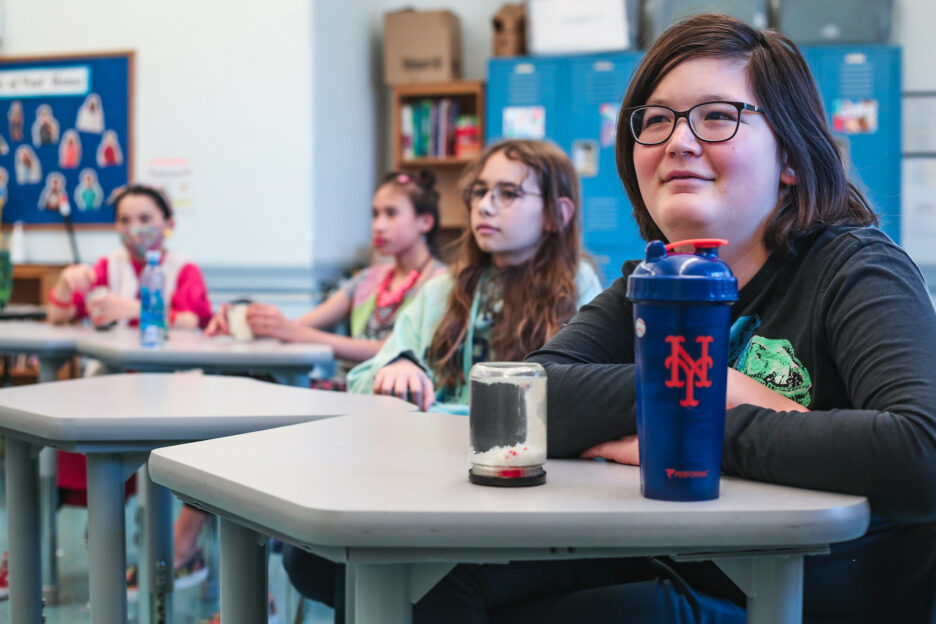
Sixth grade students are introduced to basic vocabulary, conversational skills, and cultures of Spanish-speaking countries. In seventh grade, language is explored in group settings with dynamic activities to build proficiency in listening, speaking, reading, and writing in this second language. Eighth grade students are prepared for and enthusiastic about studying a second language in the upper school. A variety of activities, such as songs, computer-based activities, games, and kinesthetic activities, are incorporated into instruction to accommodate different learning styles.
The highlight of the Spanish course is a one-week language immersion trip to Costa Rica for all eighth graders. Students attend intensive Spanish classes each morning and go on field trips to cultural and natural sites in the afternoon. It’s an experience they never forget.
Healthy Choices
The challenges that all adolescent students face — physical changes, social challenges, growing independence, and peer pressure — are heightened for students with learning disabilities. Healthy Choices teaches students the skills necessary to make good choices.
The program provides a safe environment for students to share and openly discuss ideas, feelings, and concerns. Groups of up to six students learn important information and life skills in the following sequence of six-week courses:
- Organizational Skills
- Media Literacy and Social Media Safety
- Understanding Learning Disabilities
- Good Choices
- Nutrition
- Hygiene and Etiquette
- Human Sexuality
- Alcohol and Drug Prevention Education
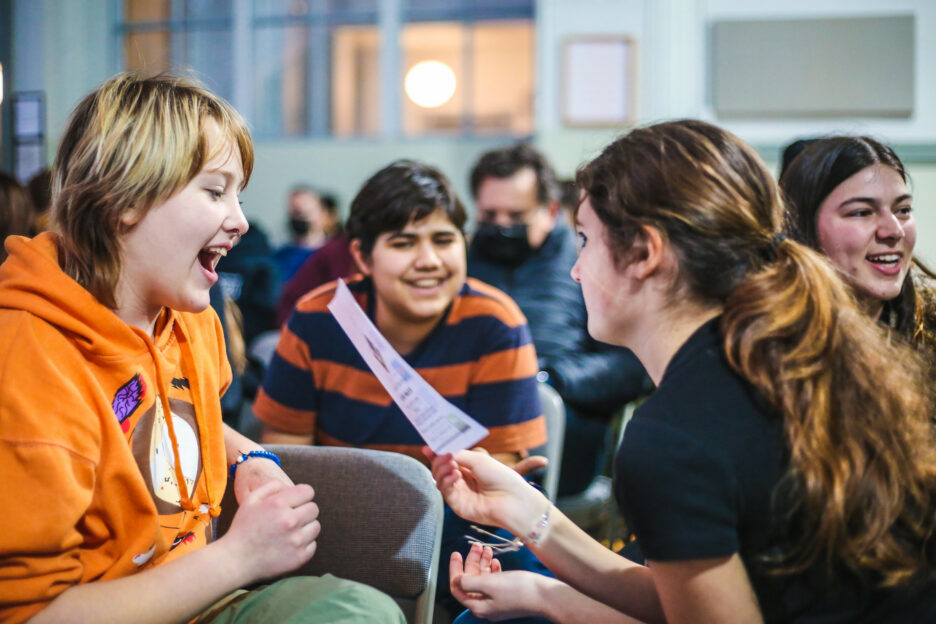
Courses are taught by MMFS faculty and staff, a human sexuality educator, and staff from the Freedom from Chemical Dependency organization.
The human sexuality educator and Freedom from Chemical Dependency staff hold informational meetings for parents to provide them with resources for dealing with many of the hard questions and issues their children may face during adolescence.